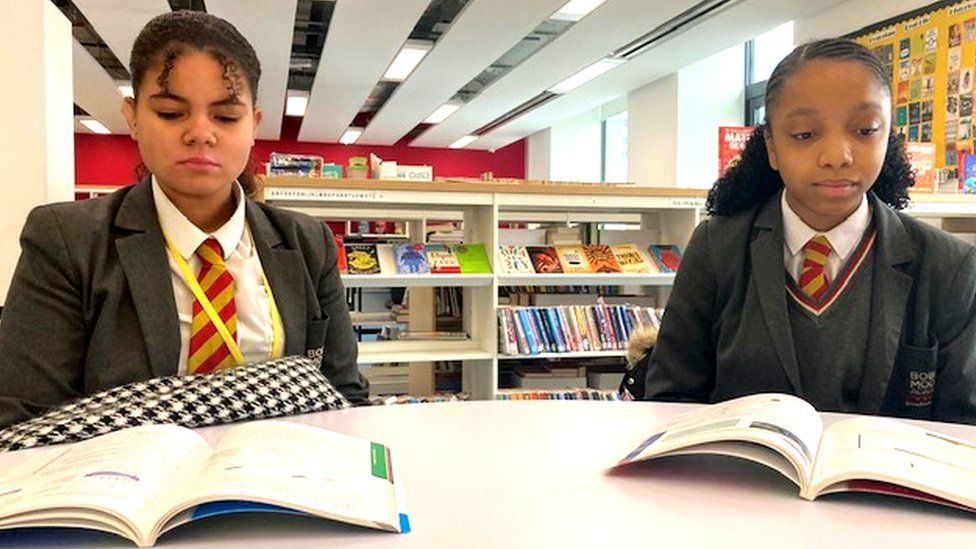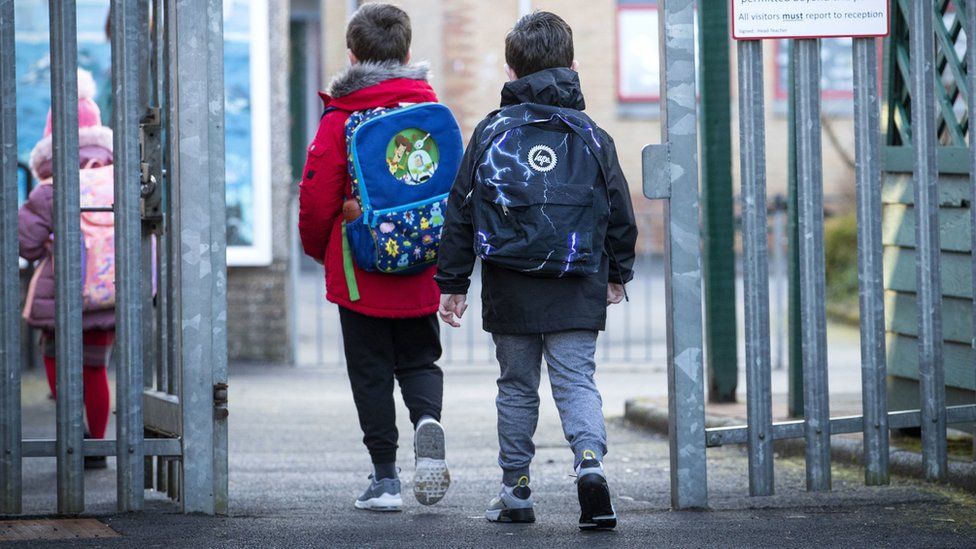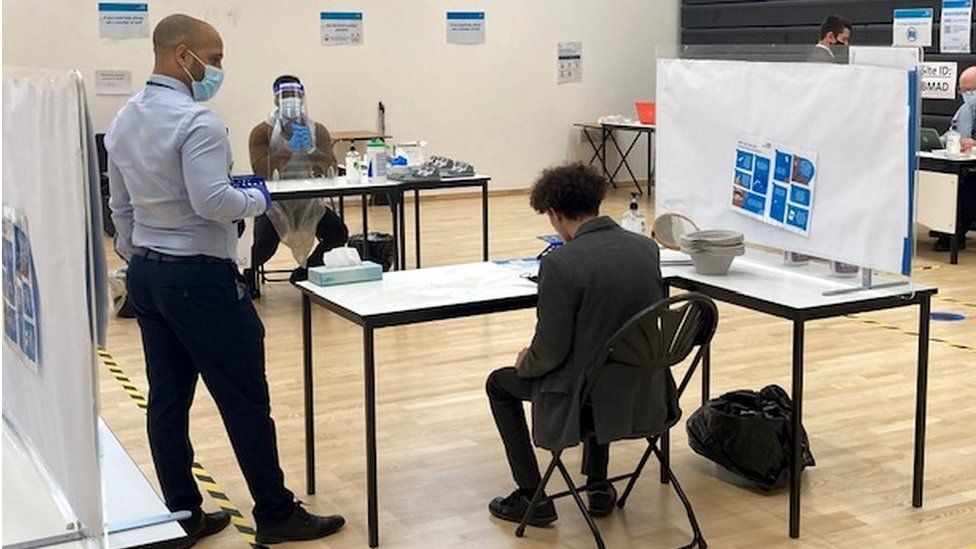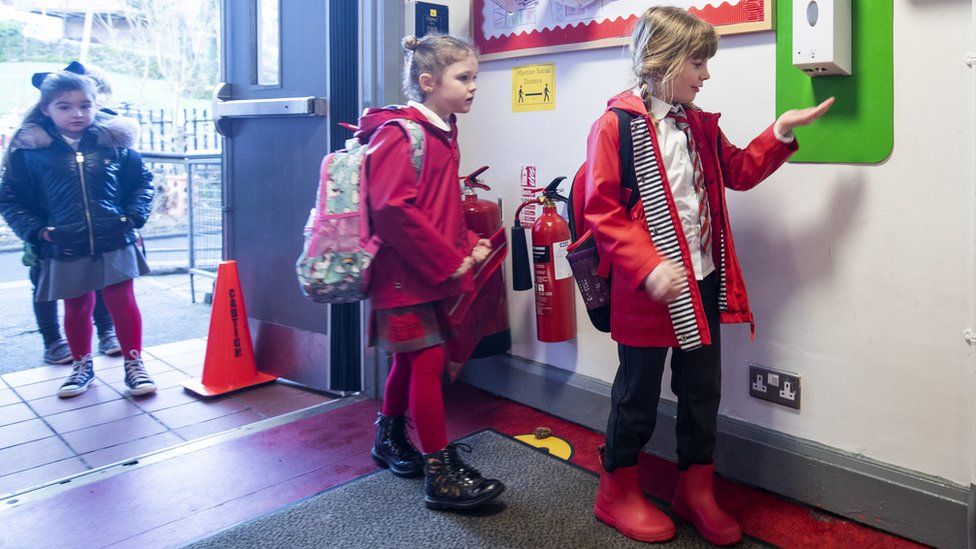A new four-step plan to ease England's lockdown could see all legal limits on social contact lifted by 21 June, if strict conditions are met.
Shops, hairdressers, gyms and outdoor hospitality could reopen on 12 April in England under plans set out by the PM.
From 17 May, two households might be allowed to mix in homes, while the rule of six could apply in places like pubs.
It requires four tests on vaccines, infection rates and new coronavirus variants to be met at each stage.
Prime Minister Boris Johnson told MPs the plan aimed to be "cautious but irreversible" and at every stage decisions would be led by "data not dates".
There was "no credible route to a zero-Covid Britain nor indeed a zero-Covid world", he said.
Mr Johnson later told a Downing Street news conference the coming spring and summer would be "seasons of hope, looking and feeling incomparably better for us all".
He described the plan as a "one-way road to freedom" but said he could not guarantee it would be irreversible "but the intention is that it should be".
It comes as the first data on the UK's coronavirus vaccine rollout suggested it was having a "spectacular" impact on stopping serious illness.
Step-by-step
As part of the first step of the plan for easing lockdown in England:
- From 8 March - All schools will open with outdoor after-school sports and activities allowed. Recreation in an outdoor public spaces - such as a park - will be allowed between two people, meaning they would be allowed to sit down for a coffee, drink or picnic
- From 29 March - Outdoor gatherings of either six people or two households will be allowed. It is understood this will include gatherings in private gardens. Outdoor sports facilities such as tennis or basketball courts will reopen and organised adult and children's sport, such as grassroots football, will also return
Secondary school pupils can access tests and will be required to wear face coverings in classrooms and shared spaces like corridors.
There will be a gap of at least five weeks between each of the plan's subsequent steps to allow for the impact of changes on infection rates and hospital admissions to be assessed.
The second step from 12 April would see major parts of the economy permitted to reopen:
- Non-essential retail opens, hairdressers and some public buildings like libraries
- Outdoor settings like alcohol takeaways, beer gardens, zoos and theme parks
- Indoor leisure like swimming pools and gyms
- Self-contained holiday accommodation, such as self-catering lets and camp sites
But wider social contact rules will continue to apply in all settings - meaning no indoor mixing between different households will be allowed.
Mr Johnson confirmed the end of hospitality curfews - and requirements to eat a substantial meal alongside alcohol.
He said a review of international leisure travel restrictions would be announced by 12 April at the earliest.
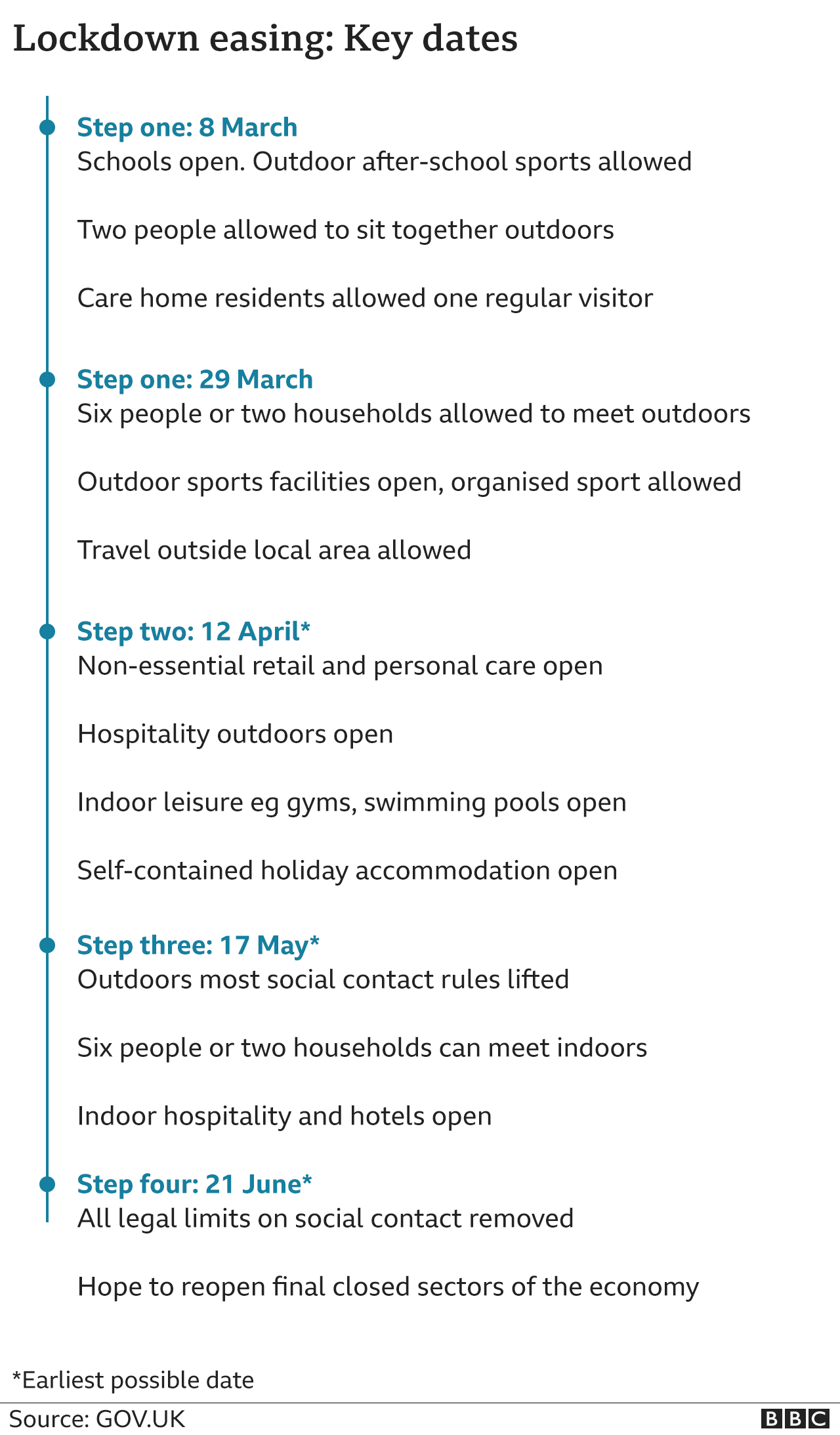

Funerals continue with up to 30 people, and weddings with up to 15 guests.
The third step will come from 17 May - if the data allows - and will see the "rule of six" abolished for outdoor gatherings, replaced with a limit of 30 people:
- Two households can mix indoors - with the rule of six applied in hospitality settings like pubs
- Cinemas, museums, hotels, performances and sporting events reopen - though social distancing remains
- Up to 10,000 spectators can attend the very largest outdoor seated venues like football stadiums
Up to 30 people will be able to attend weddings, receptions, funerals and wakes.
Mr Johnson said this step would also "consider the potential role of Covid status certification" - which could refer to so-called "vaccine passports" - in helping indoor venues to reopen safely.
Before the fourth step, ministers will carry out a review into social distancing and other "long-term measures" designed to reduce transmission, including the "one metre plus" rule and the wearing of face coverings.
They will also consider whether to lift the "work from home" guidance, which the government says people should continue to follow until the review has been completed.
The fourth step from 21 June will potentially see all legal limits on social contact removed, with the final closed sectors of the economy reopened - such as nightclubs.
The government hopes that - from this date - restrictions on weddings and funerals will also be abolished.
Music and events leaders called for more financial support for the sector, with the boss of one live music trade body saying his industry is "at the back of the queue to re-open" once restrictions are lifted.
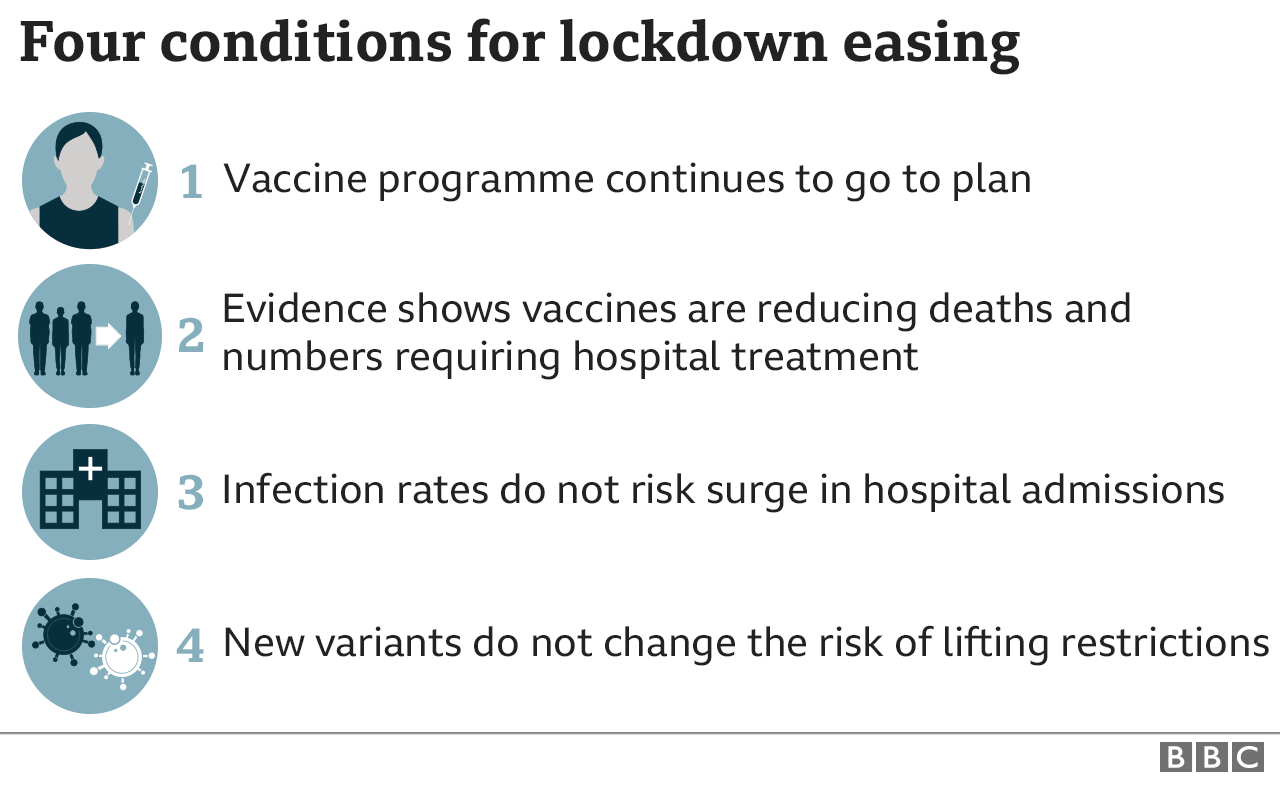

Labour leader Sir Keir Starmer welcomed the plan but said certainty was needed over the future of the government furlough scheme for both businesses and workers.
Prof Neil Ferguson, of Imperial College London, said he thought the roadmap struck the "right balance" - but warned reopening schools risks increasing the number of cases reported each day.
Speaking later at the Downing Street briefing, UK chief scientific adviser Sir Patrick Vallance said it was "very important" to leave a gap of five weeks between the changes in the roadmap to avoid "flying blind".
Sir Patrick also said "baseline" measures - such as face coverings in certain situations, hand washing, and self-isolation - may be necessary next winter.

Why the caution?

The vaccines are working well and infection levels have fallen five-fold since the start of the year.
So why, many may ask, is there such caution?
The answer lies in the mountain of data published by the government as it unveiled its roadmap.
Among the documents was modelling done by Imperial College London.
It showed a rapid easing of restrictions could lead to surge in deaths over the summer and a total of 80,000 deaths by the middle of 2022.
There is much uncertainty about scenarios like this - for one thing it did not take into account any seasonal impact that the warmer weather could bring by reducing spread of the virus.
The gradual lifting could, by comparison, may reduce that to around 30,000. That would bring it in line with the sort of deaths we could see during a bad flu winter.
UK chief medical adviser Prof Chris Whitty says that should be the context in which we judge Covid now.

The devolved nations have the power to set their own restrictions but have largely moved in the same direction, though at different speeds, during the pandemic.
First Minister Nicola Sturgeon has said Scotland would return to a tiered system of restrictions when lockdown measures are eased.
It means different parts of the country could be under different rules. Ms Sturgeon added that she would set out the likely phases for a gradual lifting of restrictions on Tuesday.

- LOOK-UP TOOL: How many cases in your area?
- YOUR QUESTIONS: We answer your queries
- THE R NUMBER: What it means and why it matters
- TEST AND TRACE: How does it work?

In Wales, First Minister Mark Drakeford has said he hopes the "stay-at-home" requirement could end within three weeks, with some non-essential shops and hairdressers possibly reopening at the same time.
Northern Ireland's health minister has played down the prospect of restrictions being eased in time for Easter. A review of current measures will take place on 18 March.

An idea of what's next

Across England people have a better idea now of what the next few months look like if the virus is kept under control.
Remember all the caveats. Remember Boris Johnson has set out the tests that have to be met for this to go ahead. Remember decisions have been reversed before.
Boris Johnson thinks this plan is cautious and the government is determined that it will only move when it feels it is safe. But some Tory MPs will be disappointed it does not go further, and are likely to hold the PM's feet to the fire when it comes to meeting these dates.
One question which has been raised by the PM's statement is whether the government has just opened the door to domestic vaccine passports in all but name, something ministers have previously ruled out.
There is going to be a review on whether a vaccine certificate could allow more social contact. This decision has not been taken - but some may now be wondering if it is on the agenda now.

It came as a further 10,641 coronavirus cases were reported on Monday, alongside another 178 deaths within 28 days of a positive test.
More than 17.7 million people across the UK have now received at least one vaccine dose, according to latest government figures.
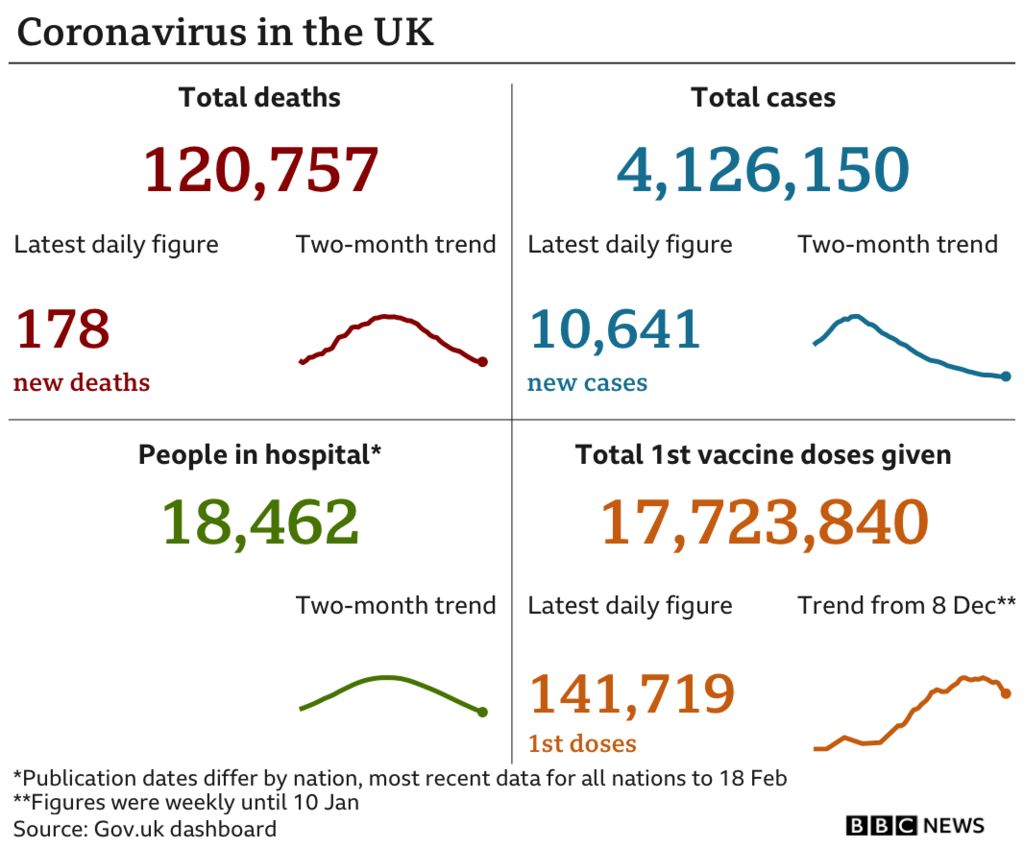

- BBC HEADROOM: Your mental health toolkit - Mindful tips, mood mixes and motivation
- 'I WANT PEOPLE TO TALK': West Ham Women captain opens up on mental health

https://news.google.com/__i/rss/rd/articles/CBMiJmh0dHBzOi8vd3d3LmJiYy5jby51ay9uZXdzL3VrLTU2MTU4NDA10gEqaHR0cHM6Ly93d3cuYmJjLmNvLnVrL25ld3MvYW1wL3VrLTU2MTU4NDA1?oc=5
2021-02-22 21:17:28Z
52781387527374
